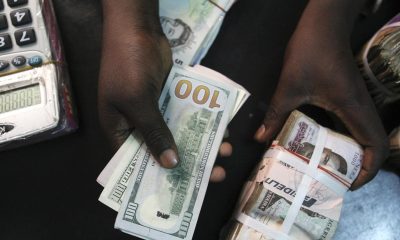Dollar to Naira Exchange Rates
Black Market Dollar To Naira Exchange Rate Today 5th January 2023

What is the Dollar to Naira Exchange rate at the black market also known as the parallel market (Aboki fx)? See the black market Dollar to Naira exchange rate for 4th January, below. You can swap your dollar for Naira at these rates.
How much is a dollar to naira today in the black market?
Dollar to naira exchange rate today black market (Aboki dollar rate):
The exchange rate for a dollar to naira at Lagos Parallel Market (Black Market) players buy a dollar for N730 and sell at N740 on Wednesday 4th January 2023, according to sources at Bureau De Change (BDC).
Please note that the Central Bank of Nigeria (CBN) does not recognize the parallel market (black market), as it has directed individuals who want to engage in Forex to approach their respective banks.
Dollar to Naira Black Market Rate Today
| Dollar to Naira (USD to NGN) | Black Market Exchange Rate Today |
| Buying Rate | N730 |
| Selling Rate | N740 |
Please note that the rates you buy or sell forex may be different from what is captured in this article because prices vary.
Nigeria’s Investment Inflow Slowdown By Insecurity, FX Inavailability
Poor forex availability, insecurity and other structural challenges have been identified as major issues hampering the increase in Foreign Direct Investment (FDI) in Nigeria.
This was observed by the World Bank in its latest report titled ‘Nigeria Development Update (December 2022): Nigeria’s Choice’, Naija News reports.
According to the international financial institution, these challenges have also affected the net withdrawal of equity by foreign investors.
The global bank noted further that FDI and Foreign Portfolio Investment (FPI) had only contributed only one per cent to the country’s GDP and do not compare favourably with similar economies of the world.
It said, “Net foreign direct investment and foreign portfolio investment flows into the Nigerian economy remain low, totalling only about 1 per cent of GDP.
“Net FDI inflows are negative, reflecting net withdrawals of equity by foreign investors. FDI and FPI flow into Nigeria do not compare favourably with similar economies of the world, reflecting difficulties with FX availability, security concerns, and other structural challenges in recent years.
“Low growth and slow structural transformation have contributed to this outcome — the pace of structural transformation of the domestic economy of the 2000s has not been sustained over a sufficiently long period.”


